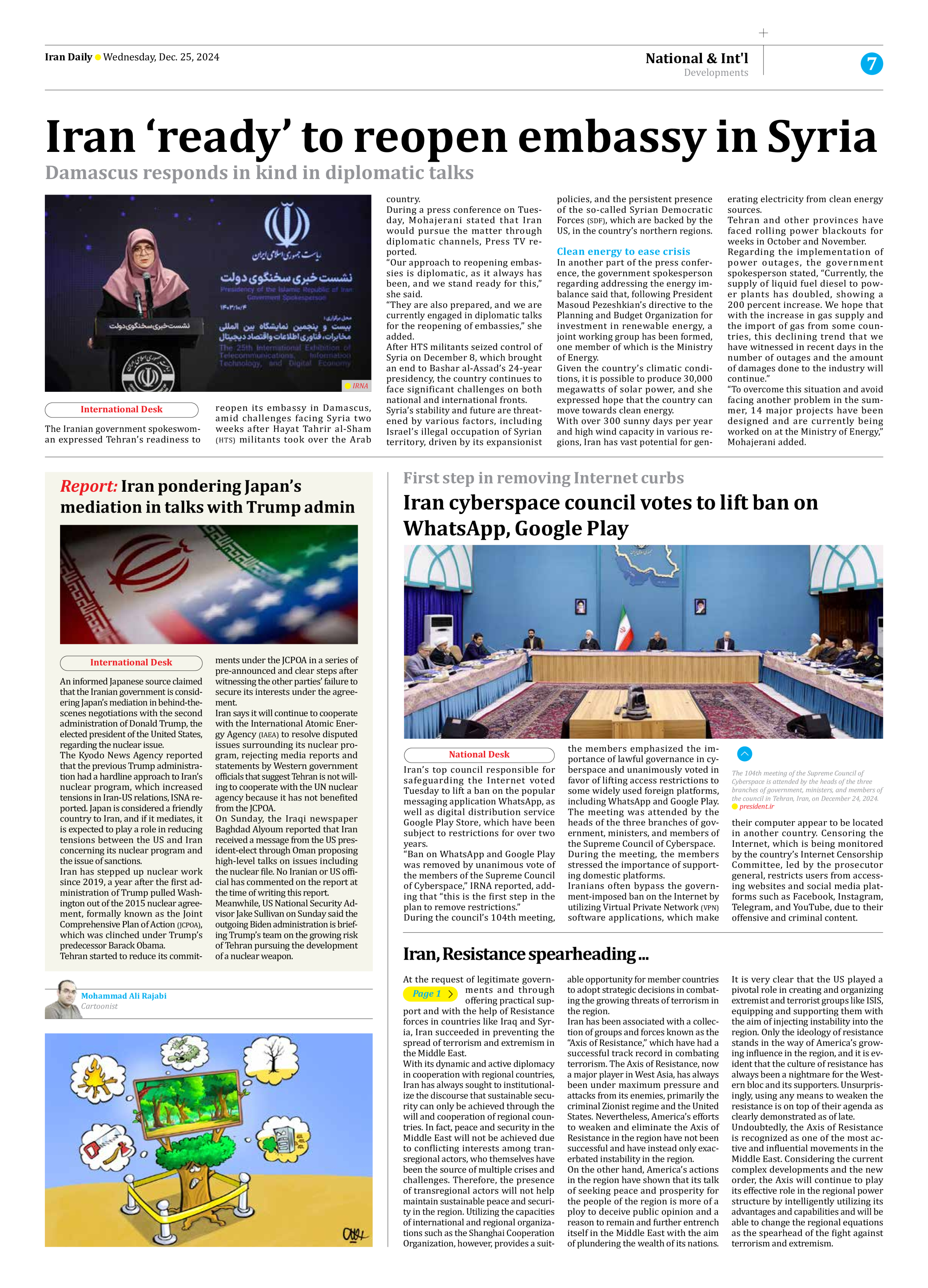
Iran, Resistance spearheading ...
Page 1
At the request of legitimate governments and through offering practical support and with the help of Resistance forces in countries like Iraq and Syria, Iran succeeded in preventing the spread of terrorism and extremism in the Middle East.
With its dynamic and active diplomacy in cooperation with regional countries, Iran has always sought to institutionalize the discourse that sustainable security can only be achieved through the will and cooperation of regional countries. In fact, peace and security in the Middle East will not be achieved due to conflicting interests among transregional actors, who themselves have been the source of multiple crises and challenges. Therefore, the presence of transregional actors will not help maintain sustainable peace and security in the region. Utilizing the capacities of international and regional organizations such as the Shanghai Cooperation Organization, however, provides a suitable opportunity for member countries to adopt strategic decisions in combating the growing threats of terrorism in the region.
Iran has been associated with a collection of groups and forces known as the “Axis of Resistance,” which have had a successful track record in combating terrorism. The Axis of Resistance, now a major player in West Asia, has always been under maximum pressure and attacks from its enemies, primarily the criminal Zionist regime and the United States. Nevertheless, America’s efforts to weaken and eliminate the Axis of Resistance in the region have not been successful and have instead only exacerbated instability in the region.
On the other hand, America’s actions in the region have shown that its talk of seeking peace and prosperity for the people of the region is more of a ploy to deceive public opinion and a reason to remain and further entrench itself in the Middle East with the aim of plundering the wealth of its nations. It is very clear that the US played a pivotal role in creating and organizing extremist and terrorist groups like ISIS, equipping and supporting them with the aim of injecting instability into the region. Only the ideology of resistance stands in the way of America’s growing influence in the region, and it is evident that the culture of resistance has always been a nightmare for the Western bloc and its supporters. Unsurprisingly, using any means to weaken the resistance is on top of their agenda as clearly demonstrated as of late.
Undoubtedly, the Axis of Resistance is recognized as one of the most active and influential movements in the Middle East. Considering the current complex developments and the new order, the Axis will continue to play its effective role in the regional power structure by intelligently utilizing its advantages and capabilities and will be able to change the regional equations as the spearhead of the fight against terrorism and extremism.







